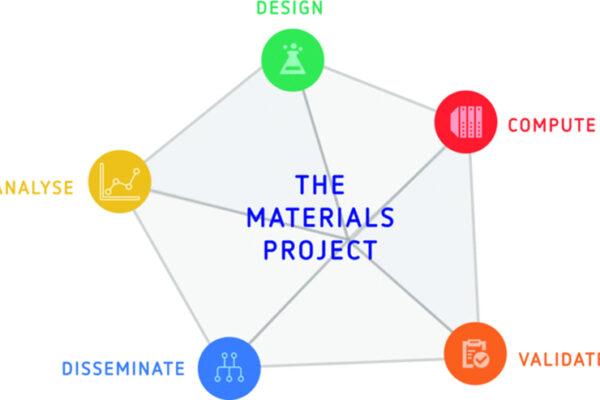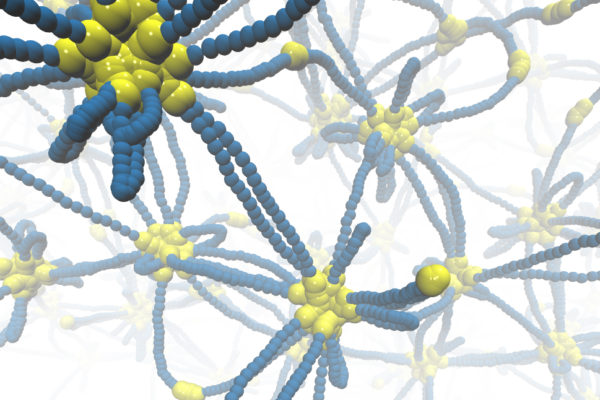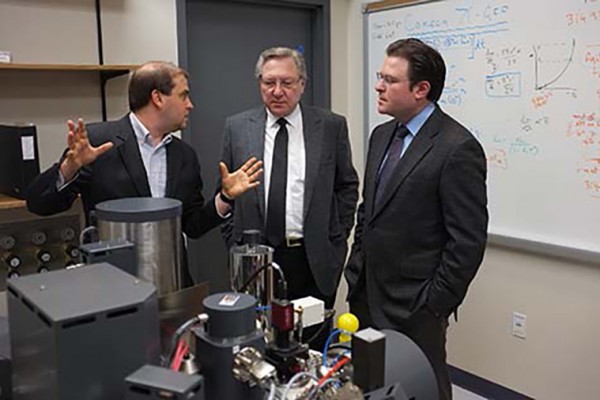Cutting-edge computing paves way to future of NMR spectroscopy
New collaborative research from the Department of Chemistry at Washington University in St. Louis, Lawrence Berkeley National Laboratory and the Department of Materials Science and Engineering at the University of California, Berkeley, leveraged quantum chemistry approaches to develop additional data infrastructure for an isotope of silicon, 29Si.
Pushing science and engineering to create new soft materials
A team of researchers from Washington University in St. Louis and Duke University has been award a prestigious National Science Foundation grant. The challenge: Push the boundaries of science to create new materials with a wide range of uses and applications.
Good as gold
Researchers at Washington University in St. Louis, led by Srikanth Singamaneni, PhD, associate professor of materials science in the School of Engineering & Applied Science, are using color-shifting nanoparticles of gold, combined with specifically engineered artificial antibodies, to detect biochemical signs of kidney damage.
SIMS laboratory dedicated
Last week, the university dedicated the Grossman Family SIMS Laboratory in Rudolph Hall. The build-out of the lab was funded by a gift from the family of WUSTL alumnus Matthew Grossman. The space houses a state-of-the-art secondary-ion mass spectrometer that will be used primarily for the analysis of geological samples but also will be available to members of the newly founded Institute of Materials Science and Engineering to study problems in the analysis and design of materials.
The holidays come early for WUSTL scientists
A large wooden crate was delivered to the Compton Hall loading dock last week, direct from Paris. The crate contained a fabulous new instrument that WUSTL scientists say will transform their ability to approach problems in geology, biology, space science, engineering and materials science with new precision. Called the Cameca SIMS ims7f-geo, it is a state-of-the-art secondary ion mass spectrometer, one of only three in the world.
Center for Materials Innovation brings many collaborators together
New and improved consumer goods, better planes, vehicles, and electronics, and new biomedical products that could lead to better pharmaceuticals and innovative medical devices are among the objectives of a new, interdisciplinary center housed in Arts & Sciences at Washington University in St. Louis. The Center for Materials Innovation, (CMI) located in the refurbished basement of Crow Hall, will enable collaborators from across campus to make basic and applied advances in materials research, eventually touching many aspects of daily life.




